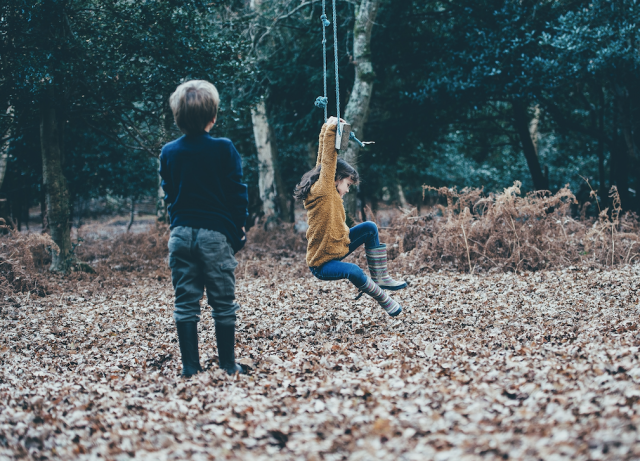Everything I learned of substance in life came in a preschool classroom.
In preschool, snacks magically taste better on technicolor melamine plates and the most impressionable minds learn how to take turns, learn empathy, and somehow find sameness when different ideas clash.
Being a modern parent means having the burden of choice, especially when it comes to the education of your children. When your child comes of age, the choices for preschool can make you feel like you are drowning in a sea of catalogues. There are schools that can immerse your child in different languages, cultures, or build a foundation for the academic rigors of elementary school. For our little family, the best choice was a play-based preschool in a suburb of Los Angeles that emphasized caring and understanding for others.
In other words, we chose a preschool that teaches people—little and big—how to be good human beings.
I learned all this as an adult—a parent volunteer in my kids’ preschool—where the philosophy is that children need the freedom to play and learn basic conflict management skills to carry with them through life. As an adult with the unique opportunity to go back to preschool, I see parallels between the playground and world politics.
Every day, little conflicts would arise at the sandbox that could be a microcosm of everyday adult life: two kids busily building a river in the sand with a water hose and sticks get interrupted by a group of other kids with a plan to build a wall in the same path as the river. Angry words are hurled across the borders of both projects, fists are clenched and both sides are about to explode until a teacher rushes over to hear both sides of the story and remind all parties the sandbox is for everyone.
“Try to work together,” is the common advice.
Replace the sandbox with real-life territories in local neighborhoods or overseas and you can see many similarities. But of course, the grown-up world is much more complicated than playground politics.
Or is it?
Adulting is hard, but when different ideas clash what tools do we use to help resolve problems? Do we look into each other’s eyes and notice feelings? Do we take ownership of our actions and try to come to a solution as a group? Or do we retreat to our devices and write angry tweets in a series of 150 characters or fewer?
In this politically charged grown-up world, it is clear we can all use some preschool skills.
My most recent Instagram story post was a meme of a Victorian Era woman passionately playing the piano with a distant gaze at the words: “Please excuse me while I overreact irrationally.” It was a post to vent my frustration at a friend without really addressing the problem. Perhaps subconsciously I sent this meme out into the social media world in hope that my friend would take notice and ask, “Is that about me?” That is totally rational thinking, right?
When my 7-year-old noticed my look of distress—not unlike the Victorian woman’s expression on the meme—he asked why I was feeling sad. My first-born was the trailblazer in the preschool education on human goodness. When we entered the gates of the school, we embarked on a path of learning together, but I was the one who kept forgetting basic social-emotional skills. Here, my 7-year-old noticed my face, named my feelings and expressed empathy, so I trusted in his wisdom. I took a deep breath and told him: My friend said something that broke a string of trust in my heart, and I feel worried that she will do it again.
Brows knitted, he seemed to chew on my words slowly before saying, “Well, did you tell her how you feel?”
Is the grown-up world more complicated than sandbox politics? My first-born’s advice was simple and spot-on—direct communication between two human beings is a time-honored and effective form of conflict resolution, but I have fallen into the habit of hiding behind my keyboard and my phone.
I am not alone.
According to Pew Research, adult social media users are increasingly feeling worn out about political posts and discussions. In this politically divisive era, It is easy to see why. One angry tweet gives rise to another angrier one without any consideration that there is a human being at the keyboard. Behind the shield of our screens, we isolate ourselves in an “us versus them” mentality and hurl soul-shattering insults at one another.
It makes me yearn for the simplicity of the preschool playground shaded by mulberry trees where we see children doing basic forms of the same thing. Two kids happily playing together run into a wooden playhouse and stand at the doorway. Together they chant, “This is our house! Whoever is wearing purple cannot come in!”
So the teacher rushes over and reminds everyone that the playhouse is for everyone, and gives a basic lesson about empathy: look at the other people’s faces outside of the house. How do your words of exclusion make them feel? How would you feel if you were on the other side of the door?
Usually, there is a pause for thought and a resolution to coexist in the same space, purple and all.
In these moments, I think we can all learn a lot from our children. We can learn to coexist and find common ground even in the face of differences.
And that, maybe just maybe, some grown-ups need to go back to preschool for a solid lesson in being good human beings.











